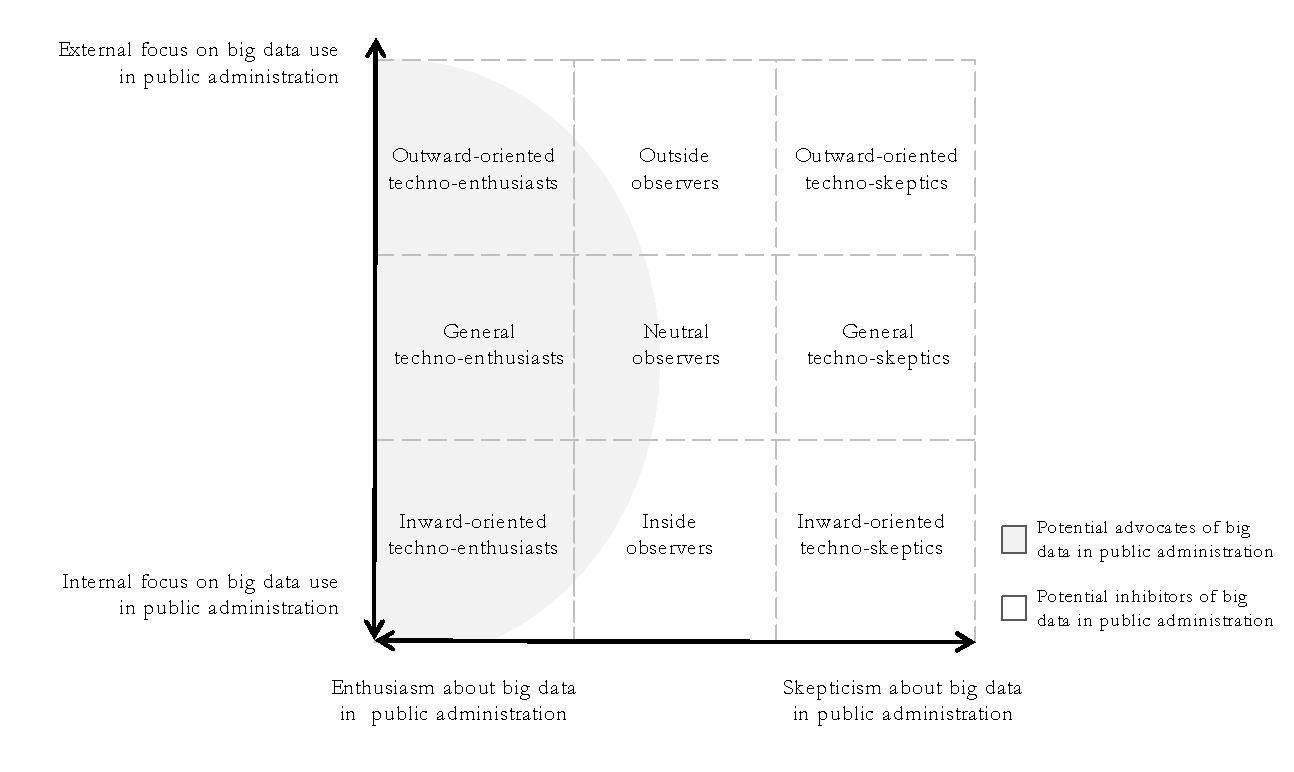Public Managers in the Face of Big Data: Panic or Panacea?
There is no doubt that we have arrived in the era of big data, or as Peter Sondergaard from Gartner would say: “Information is the oil of the 21st century, and analytics is the combustion engine.” By nature, governments are a particularly mighty ‘oil producer’, given that they are often among the largest creators and gatherers of data in many countries. But what about their combustion engine? Do they actively harness and analyze the collected data to improve their governance and operations?.

March, 16 2020 | Tobias Mettler, Ali A. Guenduez & Kuno Schedler
Even though the craving for data in the public sector is extensive, the de facto uses of big data analytics by government organizations remain relatively limited. As we outline in our recent study published in Government Information Quarterly[1], we believe the reason for postponing the decision to invest and introduce big data analytics in the public sector is often just uncertainty… about what big data actually is, about what to expect from it, about the organizational capabilities needed to run and use it, and most importantly about the usefulness and implications for public governance and management.
Myriad attempts have been made to define the nature and scope of ‘big data’, yet public managers seem to possess divergent opinions, expectations, assumptions, and understandings. Why should we care about what public managers think, you may ask?
The implementation of big data analytics in public administrations is not always a question of technological feasibility, but of acceptance and will. Knowing and understanding the ‘technological frames’ that public managers create in order to interpret and understand the concept of big data is critical for a broad and seamless implementation of digital government, including but not limited to big data. Having knowledge of potential promoters or inhibitors as well as their value projections regarding big data analytics represents a key tactical advantage before, during, and after the implementation of this technology. Initial over-estimations or under-estimations of its potential may influence the ‘common ground’, whether big data analytics is generally perceived to be useful or useless for the public administration.
For decades, researchers have therefore paid attention to exploring and developing tools for capturing managerial cognition[2][3]. Many terms have been used in the scientific literature to describe managers’ cognitive structures, including ‘frame of reference’, ‘managerial perceptions’, ‘interpretive schemes’, ‘managerial thought structures’, ‘managerial lenses’, and ‘managers’ subjective representations’[4]. In our study, when we talk about technological frames, we thus refer to a manager’s assumptions, knowledge, and expectations concerning individual, organizational, cultural, and ethical impacts of the introduction and uses of big data.
Our findings lend support to scholarly claims that nine different technological frames on big data exist in the public sector. Besides distinct levels of techno-enthusiasm or skepticism, a key differentiation factor we found was the extent to which public managers focus on internal or societal impacts of big data analytics. Interestingly, our study showed that a technological frame does not necessarily evolve from a shared set of demographic characteristics, but rather from varying demands, needs, and surrounding conditions a public manager is exposed to.
It is worth mentioning that the different frames which public managers develop over time to comprehend and deal with big data are far from being consistent. We found many inconsistencies, which unless they are further articulated or legitimized, may unintentionally and unknowingly lead to contradictory actions by public managers or to misaligned digitalization projects or government initiatives. Inconsistencies further pose challenges for defining organizational and technical standards and make it hard to agree on a shared vision, strategy, or future roadmap. In the worst of cases, diverging views and opinions, if not addressed, can block the administration from exploiting new technological possibilities.
To conclude, the identified technological frames could serve as a starting point for analyzing whether the extended, integrative, and emergent use of big data is embraced or rejected… put differently: Do you have more people in your organization for whom the analysis and repurposing of government data is creating a sense of panic or, conversely, is it seen as a panacea for most organizational ills?
Tobias Mettler is Professor at the Information Management Research Unit of the Institut de hautes études en administration publique (IDHEAP), Swiss Graduate School of Public Administration, Université de Lausanne. Ali A. Guenduez is Assistant Professor of Digital Government, Leiter Smart Government Lab, Institute for Systemic Management and Public Governance, University of St.Gallen. Kuno Schedler is Vice-Rector and Full Professor of Business Administration with special emphasis on public management at the Institute for Systemic Management and Public Governance, University of St.Gallen.
References
[1] Guenduez, A.A., T. Mettler, and K. Schedler, Technological Frames in Public Administration: What Do Public Managers Think of Big Data? Government Information Quarterly, 2020. 37(1): p. 101406.
[2] Walsh, J.P., Managerial and Organizational Cognition: Notes from a Trip Down Memory Lane. Organization Science, 1995. 6(3): p. 280-321.
[3] Narayanan, V.K., L.J. Zane, and B. Kemmerer, The Cognitive Perspective in Strategy: An Integrative Review. Journal of Management, 2011. 37(1): p. 305-351.
[4] Nadkarni, S. and P.S. Barr, Environmental Context, Managerial Cognition, and Strategic Action: An Integrated View. Strategic Management Journal, 2008. 29(13): p. 1395-1427.























It is mandatory to be registered to comment
Click here to access.
Click here to register and receive our newsletter.